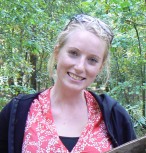DNA reveals the past and future of coral reefs
New DNA techniques are being used to understand how coral reacted to the end of the last ice age in order to better predict how they will cope with current changes to the climate. James Cook Univer

From 2005 to 2022, the main node of the ARC Centre of Excellence for Coral Reef Studies was headquartered at James Cook University in Townsville, Queensland (Australia)








Abstract: Protected areas (PAs) are a key strategy employed worldwide to maintain marine ecosystem services and mitigate biodiversity loss. However, the efficacy of PAs in achieving biological and socioeconomic goals is highly variable; a significant factor impeding their success is a lack of consideration and understanding of associated human systems. Therefore, the broad goal of my thesis was to investigate how socioeconomic factors can be incorporated into the design and management of PAs, which I addressed through three specific objectives. I pursued this research through the lens of systematic conservation planning but drew on theory and methods from a range of disciplines including social psychology, political science and economics, and used marine protected areas (MPAs) in Indonesia and Fiji as case studies. The first objective of my thesis was to examine the socioeconomic impacts of an integrated conservation and development MPA project, including whether impacts varied by social subgroup. I found that the project contributed to alleviating three key domains of poverty (i.e. empowerment, security, and opportunity) mostly during the implementation period of the project, and that there was little evidence of heterogeneous impacts according to age, gender and religion. Second, I identified the individual- and community-scale social factors related to participation in community-based MPA management, finding three main factors related to participation: subjective norms, structural elements of social capital, and nested institutions. Third, I tested key paradigms for incorporating socioeconomic considerations into spatial prioritisation, finding that widely-used methods can produce unnecessarily hard trade-offs between objectives for biodiversity, fisheries, and social equity. My thesis contributes to conservation planning theory and practice by elucidating important human dimensions relating to MPAs and how they can be incorporated into the spatial and non-spatial aspects of MPA design and management. More nuanced understanding and incorporation of socioeconomic considerations in design and management of MPAs will help ensure these conservation tools contribute to human wellbeing, and increase the likelihood of gaining local stakeholders’ support, on which conservation success is predicated.
Bio: Georgina is from Tasmania, where she completed her BSc in Marine, Freshwater and Antarctic Science. Preferring tropical rather than Antarctic waters for diving, she headed north to do her Honours research in the Philippines, where she used bio-physical simulation modelling to explore potential reef futures under multiple management and climatic scenarios. Georgina’s experiences in the Philippines inspired her to pursue a PhD in understanding the human dimensions of marine resource management.
New DNA techniques are being used to understand how coral reacted to the end of the last ice age in order to better predict how they will cope with current changes to the climate. James Cook Univer
A new study on the effects of climate change in five tropical countries has found fisheries are in more trouble than agriculture, and poor people are in the most danger. Distinguished Profess
James Cook University researchers have found brightly coloured fish are becoming increasingly rare as coral declines, with the phenomenon likely to get worse in the future. Christopher Hemingson, a
Researchers working with stakeholders in the Great Barrier Reef region have come up with ideas on how groups responsible for looking after the reef can operate more effectively when the next bleaching
Abstract: As marine species adapt to climate change, their heat tolerance will likely be under strong selection. Individual variation in heat tolerance and its heritability underpin the potential fo
Abstract: The Reef Ecology Lab in KAUST’s Red Sea Research Center explores many aspects of movement ecology of marine organisms, ranging from adult migrations to intergenerational larval dispersal
Abstract: Macroalgal meadows are a prominent, yet often maligned component of the tropical seascape. Our work at Ningaloo reef in WA demonstrate that canopy forming macroalgae provide habitat for ad
Abstract: Sharks are generally perceived as strong and fearsome animals. With fossils dating back at least 420 million years, sharks are not only majestic top predators but they also outlived dinosa
Abstract: Connectivity plays a vital role in many ecosystems through its effects on fundamental ecological and evolutionary processes. Its consequences for populations and metapopulations have been
Abstract: Evolution of many eukaryotic organisms is affected by interactions with microbes. Microbial symbioses can ultimately reflect host’s diet, habitat range, and even body shape. However, how
Abstract: The past few years have seen unprecedented coral bleaching and mortality on the Great Barrier Reef (GBR) but the consequences of this on biodiversity are not yet known. This talk will expl